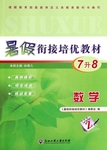题目内容
In March 1987, I started a new magazine called Creating Excellence. It was a very proud moment for me. I’d worked hard for over a year to create it, and the premiere issue (首次发刊) was a real success.
Shortly after we mailed 25,000 copies, I received one in the mail. But this one wasn’t as beautiful as the ones we’d sent out. It was marked in red ink correcting the grammatical errors (语法错误) in it. A talented editor had read the issue carefully and found more errors than I could have imagined.
I felt abashed. A magazine called Creating Excellence should be perfect in its content (内容). The stories were good, but the errors this woman had found showed that we were far from being excellent.
At first, I was upset with my editor for not having caught more mistakes, and also upset with the woman who seemed to have taken pleasure in pointing them out. Later, I was upset with myself for not having employed a better editor.
Then I realized that I had to face up to my mistakes. I called the woman who had shown me that we were not so excellent. I thanked her for taking the time to read our magazine so carefully. As painful as it was, I accepted responsibility for it.
Then I offered her the job of editing our publication. The result was a great improvement in it; we could now be very proud of our magazine.
From this I learnt that an upsetting moment could be an opportunity to see the truth, and accepting responsibility could help to prevent one making the same mistakes for a second time, and to make "excellence" a reality.
1.From the first paragraph we learn that _____.
A.the author put little effort into his first magazine
B.the author’s job was selling magazines
C.the author was very satisfied with his work
D.the author experienced a total failure
2.What does the underlined word "abashed" mean?
A.excited. B.embarrassed. C.interested. D.exhausted.
3.What do we learn about the woman who had found the errors in the magazine?
A.She was causing trouble on purpose.
B.She liked pointing out the errors of others.
C.She contributed a lot to the success of the premiere issue.
D.She ended up joining the magazine.
4.What do we learn from this passage?
A.Pride is the biggest enemy of success.
B.Success is behind many failures.
C.Picking holes in something can help you find a job.
D.Accepting responsibility for one’s errors can lead to real excellence.
1.C
2.B
3.D
4.D
【解析】
试题分析:本文叙述了作者办了名叫Creating Excellence的杂志,首次发刊获得了很大成功,可是作者后来却收到了一位女士寄来的一本指出杂志错误的邮件,作者感到很尴尬,于是她决定聘请这位女士来他的杂志社工作,结果使他的杂志办的更好,这件事告诉我们,要虚心接受别人指出的错误,这样才会取得更大的成就。
1.细节理解题。根据It was a very proud moment for me. I’d worked hard for over a year to create it, and the premiere issue (首次发刊) was a real success. 首次发刊就非常成功,故选C。
2.细节理解题。Excited兴奋的; embarrassed尴尬的; interested感兴趣的; exhausted疲惫的。
根据A magazine called Creating Excellence should be perfect in its content (内容). 杂志应该内容时最好的,却出现了错误,故选B。
3.细节理解题。根据Then I offered her the job of editing our publication. The result was a great improvement in it故选D。
4.细节理解题。根据accepting responsibility could help to prevent one making the same mistakes for a second time, and to make "excellence" a reality.接受别人指出的错误以免同样的错误,就能做到最好,故选D。
考点:人生百味类短文阅读。
点评:细节理解题可以分为集中型细节理解题和分散型细节理解题。集中型:就文章的单个细节提问,答案在原文中出现的位置一般也位于单句话或几句话中。因为具体细节不同,出题形式千变万化,因题而异。分散型:题目涉及到文章某一段或几段,甚至贯穿全文的各个位置,需要考生寻找文章中的多个细节。请注意,分散型细节理解题并不意味着题目的正确答案出现在文章的不同位置,正确答案往往也是关于文章的某一个句子或细节。只是说文章的干扰选项是关于不同的细节,需要我们在定位的时候阅读某一个区域。

 新课标快乐提优暑假作业陕西旅游出版社系列答案
新课标快乐提优暑假作业陕西旅游出版社系列答案 暑假衔接培优教材浙江工商大学出版社系列答案
暑假衔接培优教材浙江工商大学出版社系列答案 欣语文化快乐暑假沈阳出版社系列答案
欣语文化快乐暑假沈阳出版社系列答案完型填空 (共20小题;每小题1分,满分20分)
A Fool’s Day falls on 1st of April. People _31_forget the significance (意义) of the day.
In March 1980, I was 32at Durham University with seven other Chinese students. I had 33 to go to another university after graduation and had 34 application (申请) forms to several 35 . Every morning I arrived at the porter’s office (传达室) and waited my fate. But no 36 came.
On April 1st, as I was eating my 37 , Huang came in , with a toothbrush(牙刷) 38 in his hand. 39 fearing that he might forget the important news , he passed me the 40 . “Morning , Wu,” he said , “I saw Mr. G this morning. He told me that a letter had arrived in his office for you from Manchester University, and asked you to go and get it 41 possible.” I jumped with 42 .
I even didn’t 43 my breakfast and rushed to Mr. G’s office but he wasn’t 44 . I then went to the secretary’s room and 45 everything to her. She opened Mr. G’s room. I looked at everything. There didn’t seem to be a letter for me. “If he had asked you to pick it up from here,” said the secretary , “ he would have put it in 46 or simply left it to me.”
Greatly 47 , I walked out of the room and 48 the secretary lock it. 49 the secretary’s eyes 50 . “Sorry,” she said. “It’s April Fool’s Day!”
【小题1】A sometimes B. never C. always D. seldom
| 【小题2】 |
|
| 【小题3】 |
|
| 【小题4】 |
|
| 【小题5】 |
|
| 【小题6】 |
|
| 【小题7】 |
|
| 【小题8】 |
|
| 【小题9】 |
|
| 【小题10】 |
|
| 【小题11】 |
|
| 【小题12】 |
|
| 【小题13】 |
|
| 【小题14】 |
|
| 【小题15】 |
|
| 【小题16】 |
|
| 【小题17】 |
|
| 【小题18】 |
|
| 【小题19】 |
|
| 【小题20】 |
|
A Leap(跳跃)to Honor
Leaping on a narrow balance beam(平衡木) is not easy. But Lola Walter, a 13-year-old gymnast, is an expert at it.
To perfect her skills, Lola 36 for four hours a day, five days a week. At the state championships in March, she finished seventh out of 16 girls.
That’s especially impressive, 37 she is legally blind, born with a rare condition that causes her eyes to shift constantly. She often sees double and can’t _38 how far away things are.
When she was little, her mom 39 that even though she couldn’t see 40 , she was fearless. So her mom signed her up for gymnastics when she was three. She loved the 41 right away and gymnastics became her favorite.
Though learning gymnastics has been more 42 for her than for some of her tournaments, she has never quit. She doesn’t let her _43 stop her from doing anything that she wants to.
She likes the determination it takes to do the sport. Her biggest 44_ is the balance beam. Because she has double vision, she often sees two beams. She must use her sense of touch to help her during her routine. Sometimes she even closes her eyes. “You have to 45_ your mind that it’ll take you where you want to go,” says Lola.
To be a top-level gymnast, one must be brave. The beam is probably the most 46 for anyone because it’s four inches wide. At the state competition, Lola didn’t fall 47 the beam. In fact, she got an 8.1 out of 10---- her highest score yet.
Lola doesn’t want to be 48 differently from the other girls on her team. At the competitions, the judges don’t know about her vision _49 _. She doesn’t tell them, because she doesn’t think they need to know. Her mom is amazed by her _50 attitude.
Lola never thinks about 51__. She is presently at level 7 while the highest is level 10 in gymnastics. Her 52 is to reach level 9. She says she wants to be a gymnastics coach to pass down what she’s learned to other kids 53 she grew up.
Lola is 54 of all her hard work and success. She says it’s helped her overcome problems in her life outside gymnastics, too. Her 55 for others is “just believe yourself”.
| 【小题1】 |
|
| 【小题2】 |
|
| 【小题3】 |
|
| 【小题4】 |
|
| 【小题5】 |
|
| 【小题6】 |
|
| 【小题7】 |
|
| 【小题8】 |
|
| 【小题9】 |
|
| 【小题10】 |
|
| 【小题11】 |
|
| 【小题12】 |
|
| 【小题13】 |
|
| 【小题14】 |
|
| 【小题15】 |
|
| 【小题16】 |
|
| 【小题17】 |
|
| 【小题18】 |
|
| 【小题19】 |
|
| 【小题20】 |
|
Parking has long been a major headache for drivers in Shanghai. The Transportation Department is mapping out a new plan for the city’s parking system. There are one million cars on the road in Shanghai but only enough public parking space to provide room for 15 percent of these vehicles. It is no wonder that local drivers get so worried trying to find a place to park.
The city is seeing a rise in private car owners. In March, the city sent out 2,000 private car licenses, the highest number of licenses ever sent out in a month. And prices rose to 14,600 yuan, 500 more than in February. Industry experts say this suggests that local people have a strong, active interest in buying cars.
By the year 2020, the number of automobiles in Shanghai will probably reach two million. If one parking lot is for each car, then a lot of parking space should be built for these vehicles.
Downtown Shanghai is most short of parking space. However, experts point out that simply building more parking lots in downtown areas is not practical and doesn’t provide an ideal solution. The idea of “ Park & Ride” system has been suggested. This means that drivers can leave their vehicles in car parks nearby subway or bus stations and ride public transport to go downtown. Based on this idea, the city will limit the number of parking lots in downtown areas and demand higher parking fees but build more parking areas near main subway and bus stops.
【小题1】The underlined phrase “mapping out” in the first paragraph means __________.
| A.making | B.arguing | C.commanding | D.requesting |
| A.850,000 | B.1,000,000 | C.150,000 | D.2,000,000 |
| A.The city sent out more private licenses in February. |
| B.Less and less people bought cars in March. |
| C.The city sent out less private licenses in March. |
| D.More and more people are going to buy cars. |
| A.send out more private car licenses |
| B.build more parking lots near bus stops |
| C.encourage people to buy more cars |
| D.build more parking areas downtown |